

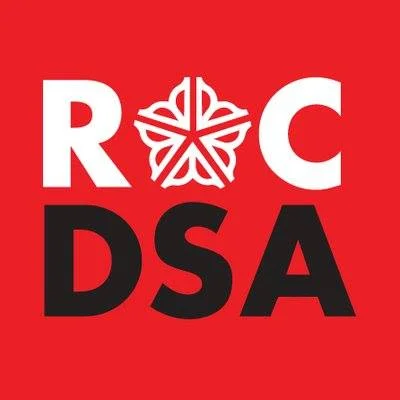

Practicing Scientific Socialism: Remarks on ROC DSA’s 2025 Chapter Convention
by Gregory Lebens-Higgins
Our voices seem to matter very little in modern American democracy. Every couple years we turn out to vote, and are occasionally asked to engage with opinion polls. But much of what occurs is in spite of our expressed preference.
DSA’s capacity to organize the working class arises from its democratic structure, empowering all members to participate in shaping our movement. ROC DSA’s annual convention “is the highest assembly of the chapter,” providing members a space to elect chapter leadership and identify priorities for the following year. The 2025 Convention occurred December 13 – 14, and wrapped up at the January General Meeting.
The convention occurred in the context of America’s rising fascism, as federal agents descend on our communities to kidnap our neighbors. While in Palestine – the focus of much of the chapter’s work over the past two years – a fragile ceasefire is broken with impunity by Israel. But it also occurred among growing resistance to imperialism and its domestic reflection in the militarization of our streets.
To kick off the convention, leadership shared the achievements of 2025. Electorally, ROC DSA retained three member-endorsees to represent socialist politics on city council. The chapter strengthened connections with labor, standing in solidarity with striking grad students at the University of Rochester and forming a local Emergency Workplace Organizing Committee to help workers form unions. Recognizing that the working class includes the unemployed “industrial reserve army,” as part of the coalition Rochester Grants Pass Resistance, DSA participated in outreach and advocacy days that have also been effective for recruitment.
Within the chapter, intrepid members re-formed the Ecosocialist Solidarity Group by petition, picking up the work of founding members of the Rochester for Energy Democracy campaign. In Genesee County, our geographic branch allied with the Tonawanda Seneca Nation’s “Stop the STAMP” campaign, and confronted the threat of ICE toward farmworkers in their community. In nearby Livingston County, a developing branch began generating excitement with a May Day rally and a Teach-In to counter christian nationalist Sean Feucht. Also in Livingston County, students at SUNY Geneseo formed a YDSA chapter.
Sharpening Our Politics
By the day of convention, ROC DSA boasted 445 members in good standing – an increase of 40% over 2025. This growth was represented by a spike in resolutions submitted for consideration – more than twenty, along with several bylaws amendments. In 2024, this number was sixteen including bylaws amendments.
This was the first local convention at which a resolution was submitted on an explicitly caucused basis. Caucuses, according to A User’s Guide to DSA, are “groupings of DSA members who share a deeper ideological basis . . . and who want to advance a coherent analysis, politics, and set of proposals for DSA’s direction.” Should DSA focus primarily on electoralism? Is unionization the most effective way to organize the working class? How closely should the organization collaborate with the Democratic Party?
Even new members submitted resolutions, providing input on chapter activities and communications. Where else can one have this kind of experience? DSA creates a space where all members shape the answers to the above questions.
A growing mass movement is bound to include multiple political tendencies and members at varying stages of political development. We are allied in our struggle for working-class democracy, but our disagreements highlight issues of strategic importance. Engagement with scientific socialism means experimenting with tactics, learning from our mistakes, and adapting to conditions as they arise. These decisions are informed by democratic debate at the convention and in other DSA meeting spaces.
DSA is a Party
At the 2025 DSA National Convention, the organization passed R07: Principles for Party-Building, submitted by Marxist Unity Group. This resolution commits DSA “to the goal of becoming an independent mass socialist party.” Avoiding the irrelevance of third parties in the United States, the resolution recognizes that “a ballot line is not the primary goal or indication of political independence.” (A separate proposal to run on an independent ballot line [R33-A02] failed.) Instead, DSA must bring “our independent organization and program to races whether on a Democratic, independent, or third-party ballot line.” This strategy centers DSA in fielding and supporting candidates who represent the organization’s principles, rather than merely endorsing the most progressive Democratic candidates.
At ROC DSA’s convention, members of Marxist Unity Group motivated R05: ROC DSA Must Run a Cadre Candidate for Elected Office, asserting that “the long term goal of US socialists and DSA should be building our own political party separate from the two in power, so we can take power and build socialism.” The resolution is a response to the success of Zohran Mamdani’s campaign for Mayor of New York City, and charges the Electoral Working Group “with identifying, developing, and running a Cadre Candidate for elected office” with a campaign run and staffed by DSA members, and decisions in office made in coordination with the chapter. The resolution passed 42-8, while a competing resolution calling for the ongoing independence of endorsed candidates failed 6-45.
As with the resolution passed by National, DSA’s cadre campaign is a step toward building DSA as an independent socialist party without condemning ourselves to the current irrelevance of a third party line. These cadre campaigns will identify DSA as the representative of working class demands, winning recruits to our movement. The Democrat’s cowardice and incapacity to stop Trump, while collaborating in Palestinian genocide, has discredited the Party. We may borrow their ballot line for the time being, but DSA is developing its independent strength as a socialist political force.
Mobilizing for Democracy
Several resolutions committed to expanding the diversity of our member base to become more representative of Rochester’s working class. The negative effects of capitalism are heavily racialized, yet ROC DSA is an overwhelmingly white organization. Two resolutions seek to correct this – R19: On Multiracial Organizing, and R12: Resolution for the Improved Inclusivity of People of Color in Rochester DSA. Together, these resolutions form a Multiracial Organizing Committee, and encourage outreach to minority neighborhoods and the development of DSA literature in languages other than English. They also increase accessibility measures including childcare availability for meetings. These resolutions passed by acclamation.
Members at convention also voted to form an International Solidarity Group [R21]. The group replaces ROC DSA’s Palestinian Solidarity Group, continuing the work of divestment from apartheid while uniting anti-imperial struggles and building synergy between movements. The group is also a space in the chapter for resisting the threat of ICE, which enacts colonization upon our own cities. The convention passed R06: ROC DSA Mobilizing for Democracy, which calls for building a coalition to confront ICE, and R10: Response to ICE, calling for training to protect our community – the first is being planned for the February General Meeting.
The convention voted to augment our capacity for collaboration by forming an External Organizing Committee [R11]. This will improve communication with other groups in Rochester, distribute resources across the multi-front struggle, and ensure we are standing together at decisive moments. The activities of members acting in an official capacity within these spaces was further defined by R04: Resolution for ROC DSA’s Participation in Coalition Spaces. DSA members are called upon to provide clear identification between ROC DSA and the work of coalitions, and to encourage the development of democratic coalition structures. While working in coalition across political tendencies, DSA must ensure we approach tasks with socialist analysis and praxis – advocating for clear material demands, and maintaining a revolutionary orientation and class focus. The movement must maintain its socialist and class nature.
Of particular contention was ROC DSA’s masking policy, which has continued from the height of the pandemic. While the motivators of the resolution are concerned with alienating ‘average members of the working class’ who might be put off by masking, the sentiment that we should not lower our standards to attract wider participation won out and the masking policy was retained 21-28. The failure of the government to continue tracking COVID rates, and the crippling lack of sick days or access to health insurance means that we must protect one another using the methods available.
Building the Future
Members at convention implemented a new campaign prioritization structure that recognizes the multi-front struggle against capitalism alongside DSA’s growing capacity, while also directing resources toward a democratically selected priority campaign. The chapter’s priority campaign for the first months of 2026 is Tax the Rich, a package of legislative proposals that would redistribute wealth from multimillionaires to fund universal child care in New York State. Some members at convention expressed concerns that Tax the Rich is “not an inherently socialist campaign,” and struggles within the limits of bourgeois democracy. To avoid this outcome, the campaign must demonstrate the strength of DSA to pressure politicians, rather than acting as collaborationists. ‘Non-reformist reforms’ improve the lives of the working class, limit the power of the capitalist class, and build the capacity of the socialist movement beyond limited reforms that chip away at the capitalist structure.
The chapter also approved renewing involvement in Rochester Grants Pass Resistance, and efforts by the Labor Working Group to recruit members for unionization efforts in their workplace; as well as taking political positions against gerrymandering tactics (à la California) [R07] and the use of generative AI in chapter materials [R13].
ROC DSA is coming off incredible momentum from 2025. The Trump Administration is laying bare the stakes of the capitalist project. While we must remain flexible in responding to Trump’s agenda, we must always look toward building a socialist alternative that fully liberates the working class. The chapter is approaching its tenth anniversary in March. We will continue to struggle. We will make mistakes. But we will win. The force of collective human liberation is unstoppable.
“To accomplish this act of universal emancipation is the historical mission of the modern proletariat. To thoroughly comprehend the historical conditions and thus the very nature of this act, to impart to the now oppressed proletarian class a full knowledge of the conditions and of the meaning of the momentous act it is called upon to accomplish, this is the task of the theoretical expression of the proletarian movement, scientific Socialism.” – Lenin
The post Practicing Scientific Socialism: Remarks on ROC DSA’s 2025 Chapter Convention first appeared on Rochester Red Star.


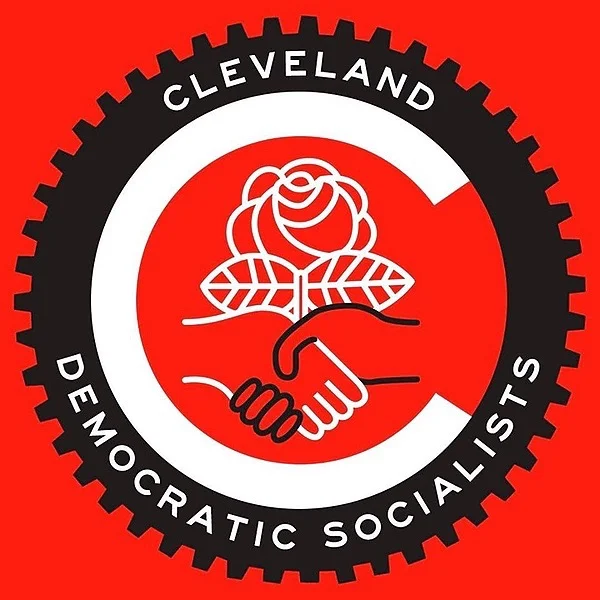

“What is Violence?” by Sarah Selan Highlights the Hypocrisy of the State When Faced With Action
Author: Serge S.
Artwork can carry many meanings. Sarah Selan, the artist behind the recent Cleveland Institute of Art (CIA) exhibition What is Violence?, hopes that people can see the deeper meaning underneath the surface of her paintings and take action to end the genocide in Palestine.
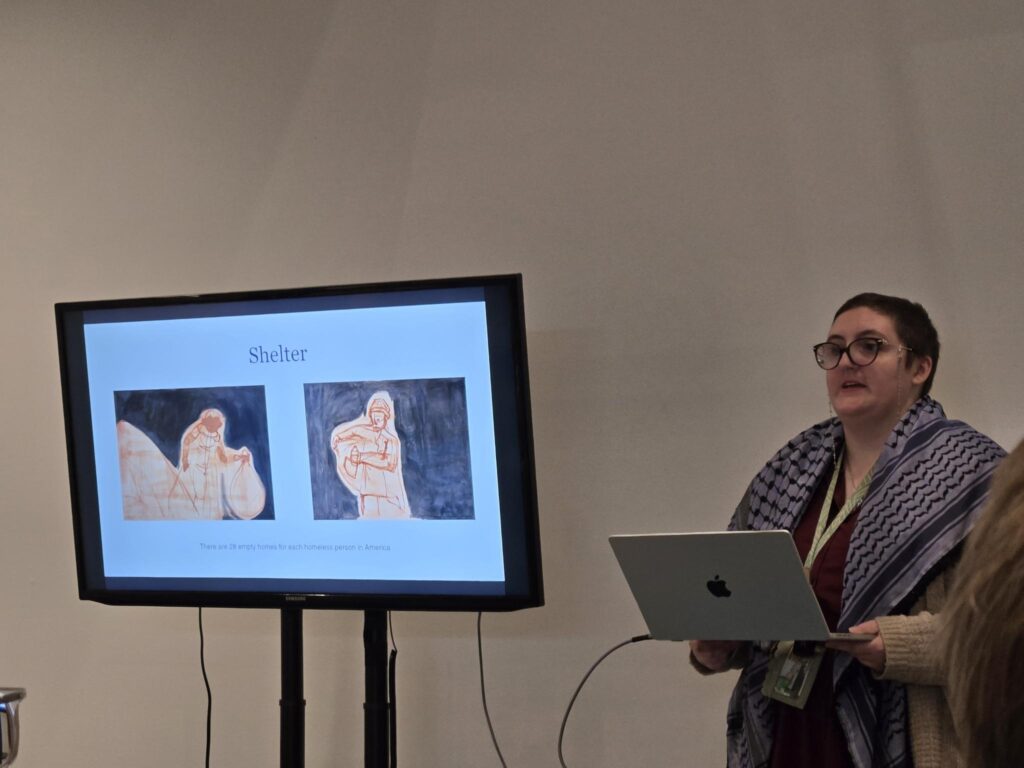
Her paintings consist of saturated dark backgrounds, figures of civilians forming protective barriers against ICE, interference with weapon manufacturers and other actions that highlight state hypocrisy when it labels direct action and peaceful resistance as “violence”.
Selan has personally tasted the arbitrary nature of the government when she was charged, along with ten others, for her alleged involvement in a Nov. 2024 protest. According to the allegations, several buildings and landmarks at Case Western Reserve University (CWRU) were smeared with red paint, including a statue of retired chemistry teacher “Doc Oc.”
The action, which the school claims caused $400,000 in damages, was in response to the CWRU and CIA’s continued work with institutions in the genocidal state of Israel. Students have long demanded the university cut ties with the country.
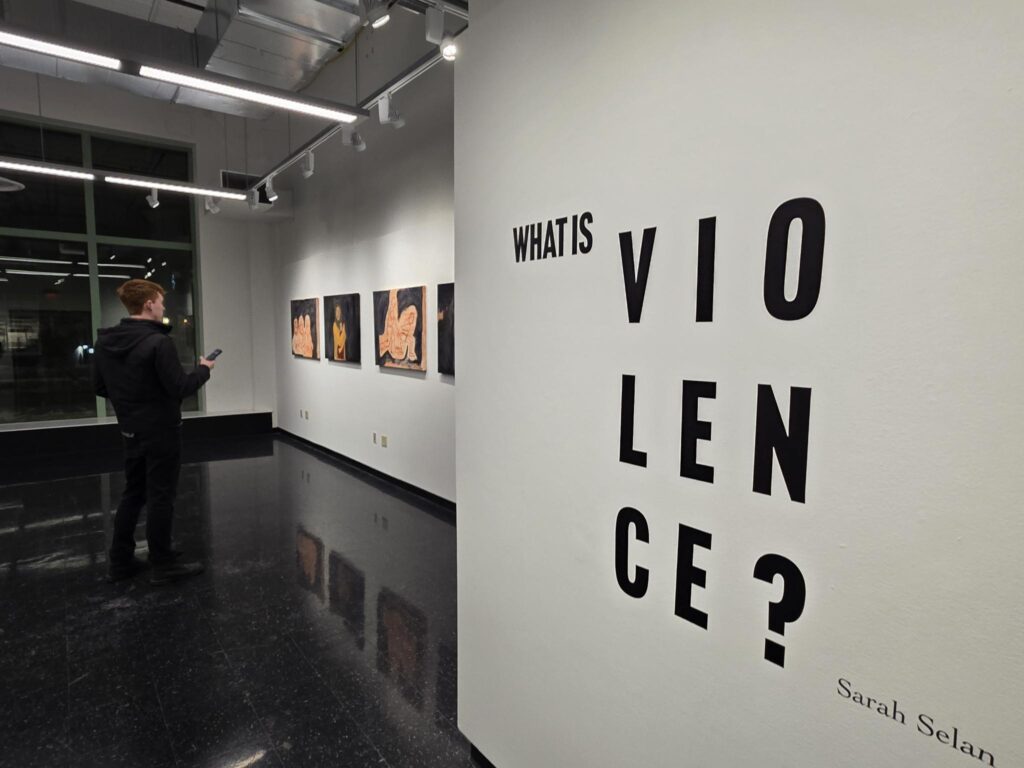
As part of her punishment, Selan was ordered by The Cleveland Institute of Art to show what they categorized as “better” ways of protesting. She did, but she did it in her own style.
“To be frank, the assignment from the school felt a bit condescending,” Selan responded in a written interview. “I was told that I was fighting a good fight, but the way I was fighting is not acceptable. My instructions were to introduce ‘better’ protest ideas from people I do not believe want us to win in the first place. I wanted to use this opportunity to display the difference between peaceful protest and non-disruptive protest. The vandalism was a peaceful protest. Nobody got hurt or was threatened with violence.”
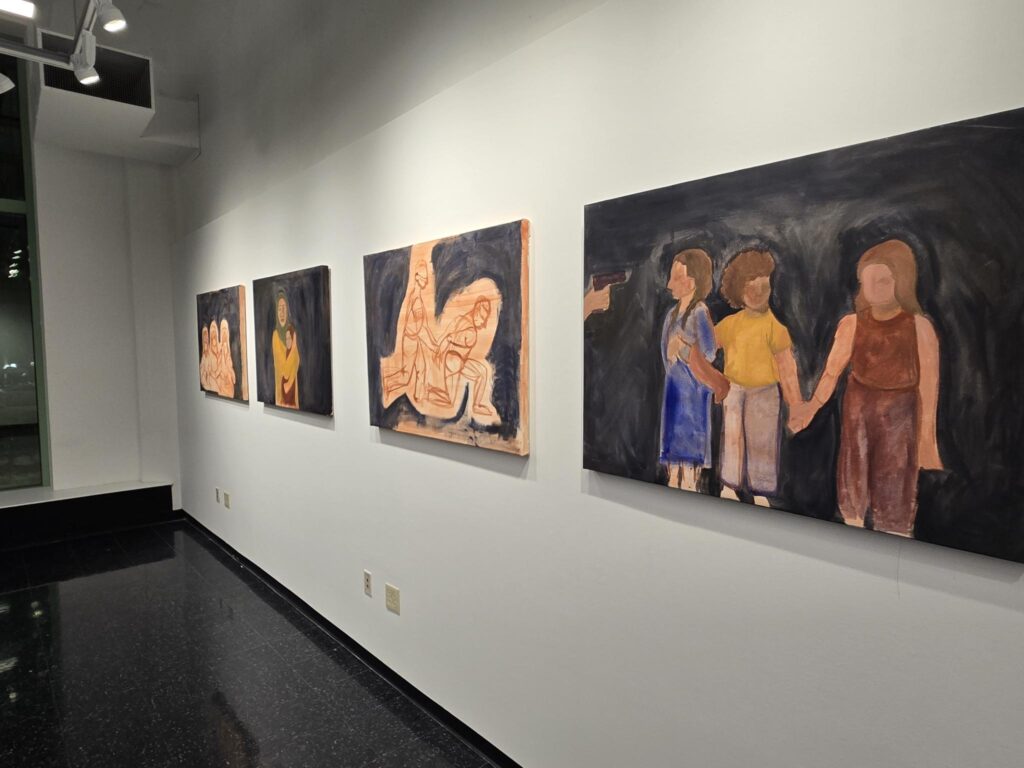
“That being said, it was a disruptive protest,” she added. “People who equate disruption with violence fail to realize that a protest without disruption gives no reason for demands to be met, and no reason for anyone to pay attention to what you are fighting for.”
The paintings remain unfinished. The reason why, Selan said, was to emphasize that the fight for liberation is never over, but also a way to honor the memory of those artists murdered in Palestine by Israel.
“The first is that the revolution is never really over. The fight for global liberation is never really over,” Selan wrote. “We have miles to travel against our oppressors as we work to gain the freedom of ourselves and our neighbors. I wanted to portray that these acts against us are in progress, as are our acts of resistance against them.”
“The second reason was that I often found myself emotionally stuck,” she added. “What right do I have to make art when I should be out fighting? What lottery have I won to find myself in a situation where my punishment for disruption is art while others face death?”
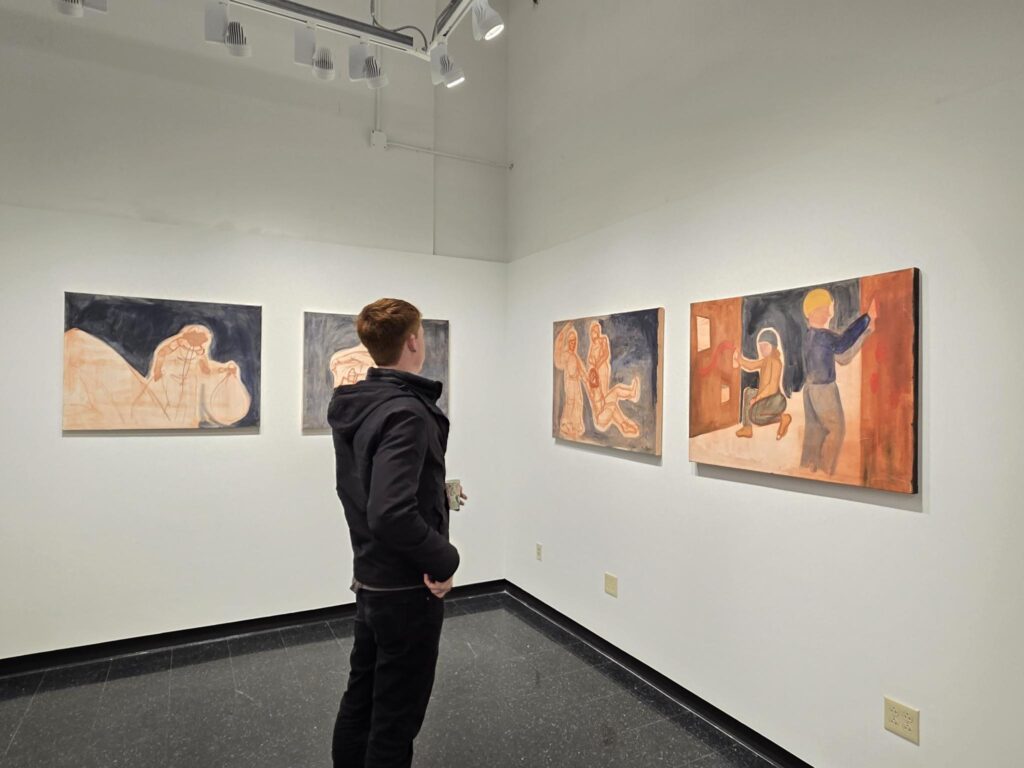
“It was difficult to get the work done in time because I did not deserve the opportunity to make it in the first place,” she concluded. “The greatest artists have been killed by Israel during the genocide. The most creative minds sit in jails and prisons in the United States due to situations outside of their control. To me it serves as a reminder that the best art has never been made because we killed the beautiful people who would have made it.”
Selan said that the school’s reaction to the protest shows the institute’s true stances on human rights, and she hopes that students continue to call for divestment.
“I have no doubt that a day will come in the future where both institutions will boast that their students contributed to an encampment to end the genocide of the Palestinian people,” Selan wrote. “They will use it to draw in future applicants to come be a part of a historic campus with deep roots in liberation.
“They punished the brightest minds their schools have ever seen to promote their beliefs of hatred and bigotry. They work with groups that exterminate an entire group of people just to line their pockets. I condemn their hypocrisy and hope that as students continue to push for divestment, we will transform these institutions into respectful academic organizations that inspire calls for global liberation, instead of suppressing them.”
Selan said that being an organizer as a student comes with its own limitations. When people graduate, movements slow down, and future participants can lose the memory of what worked and what didn’t in previous encampments.
She added that student organizing can only go so far, and for real progress to be made, the skills and experience developed among the encampments need to be put back into the community.
“Student protesters have always been some of the most powerful voices in the activist community,” Selan wrote. “From anti-war movements to civil rights, our students are strong. That being said, we can not put the weight of the revolution on their back.
“I am proud of the students who were able to achieve divestment through their encampments, but that cannot always be the case. There is a lot of pressure to change campuses that have been rooted in imperialism and oppression for decades, but most students will only be around for 4 years. These movements can take decades to achieve change and that can be an overwhelming thought to a lot of young people.”
“Do not take this to mean that campus-based issues aren’t worth fighting for,” she continued. “But rather as a reminder that even if you do not achieve what you hope to in your time at an academic institution, you are making progress towards personal growth and a strong community.”
When asked for her final thoughts, Selan said that her future will be rooted in activism, and in a way, she can thank the state for that.
“The vandalism and my alleged involvement changed my life,” Selan wrote. “I was thrown in jail, received death threats, and was forced to pay for damages that were obviously inflated. Despite all this, I have grown as an organizer and will hold these experiences with me forever. They will inspire not only my art, but everything I do in my life. I am grateful for my journey, and I am right where I want to be.”
The post “What is Violence?” by Sarah Selan Highlights the Hypocrisy of the State When Faced With Action appeared first on Democratic Socialists of America.
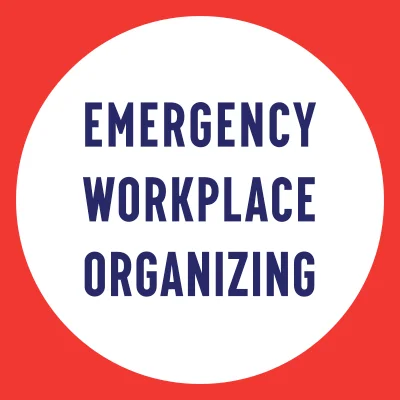

There’s no app for organizing
Developers of a new app called Uniform hope that workers will use it to organize anonymously, but this is not how unions are won.
The post There’s no app for organizing appeared first on EWOC.
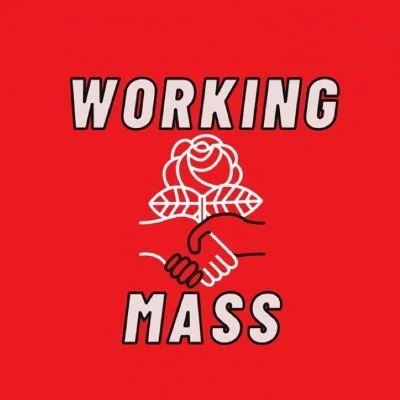

Interview: Lamplighter Brewers Drum Up Community Support Before Union Vote

By: Maritza S
CAMBRIDGE, MA – On February 4, 2026, Lamplighter workers filed for union recognition for their bargaining unit of ~40 rank-and-file encompassing the front of house, production, sales, kitchen, and pepita. They face an imminent election on Friday, February 27, to determine the immediate future through the National Labor Relations Board (NLRB) process after management declined to voluntarily recognize the union.
On February 22, Lamplighter workers drummed up support by inviting their regulars and supporters to a union solidarity day across their two taprooms: a chance to inform community members of the campaign and the union’s oncoming actions.
Lamplighter workers are organizing with Local 1445 of the United Food and Commercial Workers International Union (UFCW), a union of 11,000 in Massachusetts concentrated in the food packaging, grocery, cannabis, and retail industries. Recent UFCW 1445 victories include the 2025 UMass Memorial workers’ ratification of a 3-year contract in Worcester and other shops joining the union’s ranks – particularly in brewing and cannabis.
Working Mass spoke with a worker with Lamplighter Brewing the day before the solidarity day:
WM: When were you hired at Lamplighter?
Gabe (Worker): I was hired in July 2024 I love working at Lamplighter, to be honest – it’s a really great place to work. It’s a really good community. The front of house team is a really lovely team and I’ve recently been working a little bit in production, too, and I like working with those guys as well.

WM: What inspired you to get involved in organizing in the union?
Gabe: It’s just one of those things where we as a team were looking to have a greater say and stake in the business as a whole.
[He paused]
We all really love being a part of the Lamplighter community, and I would say there were some things that we noticed that made us feel like we needed to collectively bargain in order to have a more secure future at Lamplighter as it grows and develop and grow and develop together.
WM: What were the top demands or issues that you and your coworkers experienced?
Gabe: I think demands around job security and then also better benefits and of course, more secure and better pay.
WM: How did management respond to the unionizing? Have you faced retaliation?
Gabe: Of course, they declined to voluntarily recognize our union so we will be going to an election and have stated they do not believe that unionization is a good fit, as they described it, for Lamplighter. So I would describe their response as, I would say, negative.
WM: What is the best case scenario of victory? What does that look like?
Gabe: For me, the best case scenario is a situation where all of the workers at Lamplighter feel they can work without worrying about their job security or how they’re going to pay bills.
This dream is a shared one, but evidently opposed by management.
The February 22 solidarity day at Lamplighter Brewing Co. drove up customer awareness of the union through both passersby and activation of relational networks. More and more people become aware of the union and thus are likely to act in solidarity with workers during moments of higher confrontation during the union election process.
The support of the community is key to the organizing drive at Lamplighter. They have also asked for supporters to leave reviews shouting out the union as they move towards election on Friday, February 27.
Maritza S is a contributing writer to Working Mass.

The post Interview: Lamplighter Brewers Drum Up Community Support Before Union Vote appeared first on Working Mass.
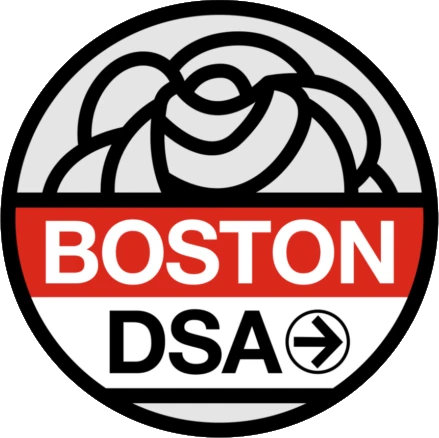

To Call Allston Home

Article on The Crimson’s website: https://www.thecrimson.com/article/2025/4/4/allston-transience-scrutiny/
Repost from The Crimson, April 4 2025, title image credits to Joanna Lin.
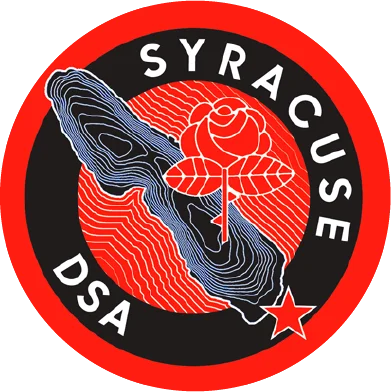

Syracuse DSA: The Affordability Slate!

📢 Big news, #Syracuse: We're officially launching The Affordability Slate! ✴️Tammy Honeywell ✴️Jo Bennett ✴️Maurice Brown Jointly endorsed by @nywfp.bsky.social, they’re committed to fighting for a working-class platform: 🏠 Truly affordable housing 👶 Universal childcare 🚌 Expanded transit access


On Interest Rates and Central Banks
by Skye Winspur
I want to make the case that democratic socialists should care about interest rates set by central banks. While I do not worship capitalism, or trust the stock market at all, I do see the value to our society in having central banks. The US Federal Reserve was created, as almost all the US government’s “deep state” institutions have been – Social Security, the Federal Deposit Insurance Corporation, and Medicare are other examples – as a response to repeated failures of capitalism. Financial panics in 1857, 1873, 1893 and 1907 were distressing enough to the investor class, not to mention ruinous to many workers, that in 1913 they pushed Congress and President Wilson to create a central coordinating institution for banking. The wisdom of not tying the value of money to shiny metallic elements would have to wait about sixty more years.
Apparently one thing Jeffrey Epstein believed strongly in was the virtue of negative interest rates. And for quite a while, the world was accommodating to him in this regard as in others, with the Federal Reserve under Ben Bernanke embracing a zero-interest-rate philosophy, and the central bank of Japan wedded to it for an even longer stretch (raising interest rates barely above zero only in March 2024). I turned 26 years old in 2008 and I remember how we were all told (by Bernanke and Larry Summers and every other Wall Street man) that slashing interest rates would “stabilize the economy,” create jobs jobs jobs, encourage every poor striving youngster to take entrepreneurial risks, cure cancer faster … What it actually did do, unquestionably, was stimulate the construction of new coal plants, usually in the Global South; encourage predatory subprime lending to people whose incomes were very precarious (the subprime rate always being substantially higher than the central bank one); and generally enable already mega-rich men to embark on vainglorious capital-intensive boondoggles that caused harm to the environment and surrounding communities (like Elon Musk’s “city” complex Starbase, which the Obama-era EPA could probably have done something about if it really wanted to). Because as soon as interest rates fall below zero, it is more profitable to spend one’s money on anything at all than store it in the bank. Of course, paying one’s workers more rarely if ever spontaneously enters the thoughts of those possessing this money, despite some economists’ claims that wage increases are “organic” or “natural” in a growing economy.
Morally speaking – and this may just be my inherited Scottish thrift speaking – I feel that saving is not the same as hoarding. Still, I also feel that wealth inequality has reached hyper-outrageous levels. Therefore, I think a wealth tax on all assets above $50 million, as Saikat Chakrabarti has proposed, is absolutely justified. I also think raising the FDIC insurance cap on deposits to half a million dollars is a very good idea, because young adults should be able to save up for homeownership in Dane County with one bank account without fear of bank failure during the next panic. The problem here is that if interest rates on CD savings accounts are zero or even less than one percent, as Kevin Warsh appears to want to push for with all the fervor of a recent convert to Trumpist orthodoxy, there is little to no financial incentive to save the sums required for a house or any similarly large purchase. Young people may even be (more) tempted to sign up for ICE or CBP and grab a quick signing bonus, hoping that they will not be asked to do anything too atrocious in the next three years. Quite a way to compound the systemic evil of the carceral state.
I am not a Marxist and I do not believe in a final, total abolition of capitalism. I think if we are going to have a central bank like the Fed (and despite the paranoid rantings of Rand Paul-aligned libertarians, I think we should) it should maintain a robust interest rate, not so high as to make borrowing impossible but not so low as to promote the creation of Starbases and Fyre Festivals and other spectacular wastes of financial resources – and no, the money Netflix made off the Fyre Festival documentary does not redeem that project. The evil of capitalism cannot be changed by loosening regulations, refusing to use preferred pronouns, or cutting borrowing costs – this is the false promise of which Trump is always trotting out new variations – it can only be reduced, and reduced very substantially, by strong enforcement of an equitable rule of law and applying brakes in the form of central bank monetary policies. To my mind, keeping interest rates well above zero is one of those brakes.
